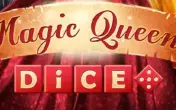_770.webp)
Blackjack is one of the oldest casino games, yet it has not lost popularity, despite the gambling market offering a variety of games of chance. In this game, the house edge is one of the lowest, making blackjack popular among professional gamblers.
What Is Surrender in Blackjack?
Although its rules are not complicated, many players fail to win regularly. To win, you should master at least the basic strategy. This article does not focus on the basics. It deals with the nuances of the option to "surrender", i.e., stop playing and receive half of the bet back. It is worth noting that novice gamblers rarely use it because they do not want to lose half the bet. They do not think about the sum of money they lose while stubbornly continuing to try to be lucky in cases when it is necessary to retreat.
Unfortunately, this rule is not available at all online casinos. Only about one-third of them allow users to surrender if the situation seems to be going against them. Yet, this rule is favorable for experienced players and dramatically reduces the house edge.
The overall principle of the option to surrender implies that gamblers may fold after receiving two cards. The dealer will take your cards and half the bet. You will keep playing on other boxes.
None of the casinos allows surrendering if the dealer has an ace. In most clubs, it is prohibited to surrender if the croupier has any ten-value card.
Examples of the player's and dealer's hands for surrendering are provided below (for five- or six-deck blackjack in which the dealer stands on any 17). This is the most common version, proven by experienced professional players and mathematical statistics. Fans of exact figures calculated these data.
Suppose you play only for an adrenaline rush and want to provide the dealer who gets a percentage of casino profits with an opportunity to earn money, or you are indifferent to money. In that case, you should not follow these recommendations. However, if your aim is either to beat a casino or at least not to lose a lot, avoid making mistakes familiar to the majority of fans.
Types of Blackjack Surrender
There are two types of surrender:
- Early surrender: This allows you to surrender your hand before the dealer checks for blackjack. This is a more favorable option for the player, as it gives you the chance to surrender even if the dealer has a natural 21.
-
Late surrender: This is the more common type. It allows you to surrender only after the dealer has checked for blackjack and confirmed they do not have one. If the dealer has blackjack, you lose your entire bet.
When to Surrender in Blackjack
It is possible to surrender in the following cases (any options available at casinos are discussed) on hard player's cards, i.e., if the hand is formed without an ace.
- If the dealer has an ace, surrender when the total score is from 5 to 7 or from 12 to 17 inclusive. We want to emphasize that it is rarely allowed to surrender if the croupier has a face-up ace.
- If the dealer has a face-up ten-value card, surrender when you have a 14, 15, or 16. Even if a 16 is composed of two eights, you should not split it, as it may seem profitable in other situations. Your 18 will not save you from a dealer's 19, 20, or blackjack.
- If the dealer has a 9, you should surrender with a 16. You should not split two eighths.
- If your hand has an Ace, most professional gamblers don't surrender.
Please follow these tips to increase your chances of winning.
| Name | Soft | Return to player | ||
|
|
99.78% | |||
|
|
99.71% | |||
|
|
99.7% | |||
|
|
99.69% | |||
|
|
99.65% | |||
|
|
99.6% | |||
|
|
99.59% | |||
|
|
99.54% | |||
|
|
99.54% | |||
|
|
99.54% |
Conclusion
As you can see, the number of situations requiring this option is minimal; however, the correct application of this rule can help players save a considerable amount of money.




































